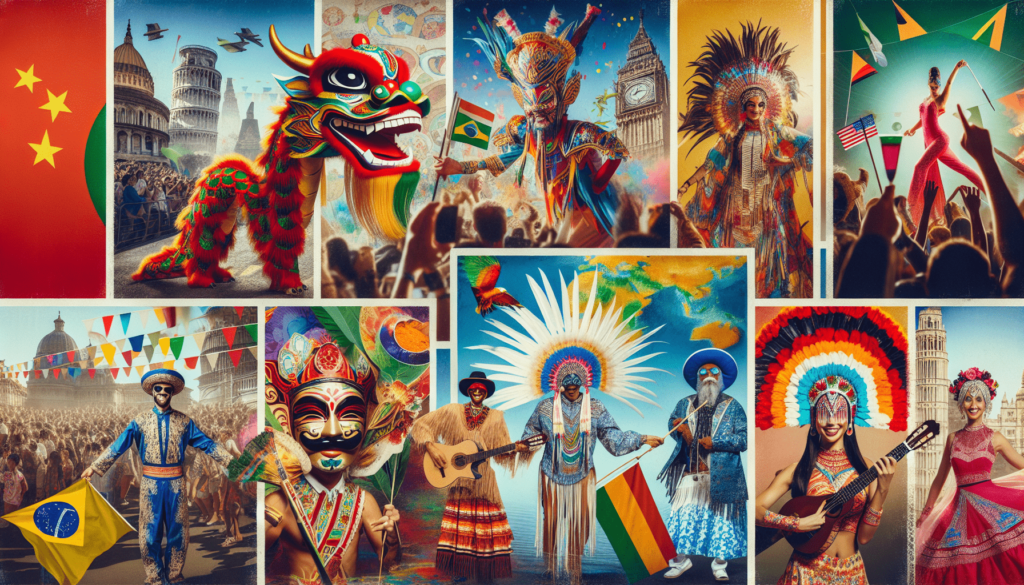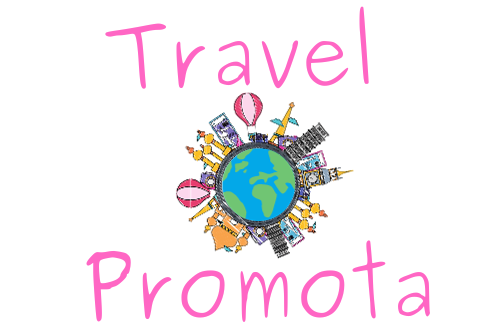If you’re a travel enthusiast looking for an adventure like no other, then 10 ways to plan a trip around world festivals is the perfect way to immerse yourself in different cultures and celebrate diverse traditions. From the colorful explosion of Holi in India to the enchanting lantern festival in Taiwan, this article will guide you on how to plan your journey, curating a once-in-a-lifetime experience that combines exploration with the joyous spirit of global festivities.
So pack your bags, grab your camera, and get ready to embark on an unforgettable voyage filled with vibrant colors, melodic rhythms, and a sense of camaraderie that transcends borders.

1. 10 Ways To Plan A Trip Around World Festivals – Researching Festivals
1.1 Learn about different festivals around the world
When planning a trip centered around festivals, the first step is to familiarize yourself with the various festivals that take place around the world. Take the time to research and learn about festivals from different cultures and countries. This will not only broaden your horizons but also allow you to discover festivals that align with your interests and preferences.
1.2 Consider your interests and preferences
As you explore different festivals, it’s important to consider your own interests and preferences. Are you more attracted to music festivals, cultural festivals, or even food festivals? Do you prefer large-scale events or more intimate gatherings? By understanding what appeals to you personally, you can narrow down your choices and focus on festivals that truly resonate with your tastes.
1.3 Check festival dates and locations
Once you have identified a few festivals that you’re interested in, it’s time to check their dates and locations. Make sure to note the specific dates of each festival and the location where it takes place. This information will be essential for planning your itinerary and making travel arrangements.
1.4 Look for information on festival activities and highlights
To make the most of your festival experience, it’s important to look for information on the activities and highlights of each festival. Find out what performances, workshops, or exhibitions are scheduled during the festival. This will help you prioritize your time and make sure you don’t miss out on anything that you’re particularly excited about.
1.5 Read reviews and experiences of previous attendees
To get a better understanding of what to expect from a festival, consider reading reviews and experiences from previous attendees. This can give you valuable insights into the atmosphere, organization, and overall experience of the festival. Reviews can also help you identify any potential challenges or drawbacks that you should be aware of before making your final decision.
2. Setting Your Budget
2.1 Determine your overall trip budget
Before diving into the specifics of festival expenses, it’s important to determine your overall trip budget. Consider factors such as transportation, accommodation, meals, activities, and souvenirs. By having a clear idea of your budget, you can make informed decisions throughout the planning process and avoid any unpleasant financial surprises.
2.2 Allocate funds for festival tickets, accommodation, and transportation
Once you have established your overall trip budget, you can allocate funds specifically for festival-related expenses. Set aside a portion of your budget for festival tickets, accommodation near the festival venue, and transportation to and from the festival. Be sure to account for any additional costs associated with these expenses, such as booking fees or transportation within the festival location.
2.3 Consider additional costs like food, souvenirs, and other activities
In addition to the main festival expenses, it’s important to consider additional costs that may arise during your trip. Factor in expenses for meals, souvenirs, and other activities you may want to explore outside of the festival grounds. This will give you a more accurate estimate of your overall budget and ensure that you have enough funds to fully enjoy your trip.
2.4 Research and compare prices for flights and accommodations
To make the most of your budget, take the time to research and compare prices for flights and accommodations. Look for deals and discounts that can help you save money without compromising the quality of your experience. Consider using price comparison websites or apps to find the best possible options for your specific travel dates and preferences.
2.5 Create a detailed budget plan
Once you have gathered all the necessary information, create a detailed budget plan that outlines all your anticipated expenses. Break down your budget by category, including festival-related expenses as well as additional costs. Having a clear and organized budget plan will help you stay on track and make informed decisions as you plan your trip around the festivals.
3. Planning the Itinerary
3.1 Identify the festivals you want to attend
Now that you have a budget in place, it’s time to start planning your itinerary. Begin by identifying the festivals you want to attend and mark them on your calendar. Consider the dates and locations of each festival and ensure they align with your overall travel plans.
3.2 Determine the duration of your trip
Next, determine the duration of your trip by taking into account the number of festivals you plan to attend and the time you wish to spend at each location. Consider any additional activities or sightseeing you want to include in your itinerary. Remember to allocate enough time at each festival to fully immerse yourself in the experience.
3.3 Allocate time for other activities and sightseeing
While festivals will likely be the highlight of your trip, it’s important to allocate time for other activities and sightseeing. Research the attractions and landmarks of each festival location and make a list of places you want to visit. This will help you create a well-rounded itinerary that combines the festival experience with other memorable experiences.
3.4 Plan the order and sequence of festivals to attend
Once you have a list of festivals you want to attend and other activities you wish to include, it’s time to plan the order and sequence of the festivals. Consider factors such as distance, travel logistics, and any specific dates or requirements for each festival. By strategically organizing the sequence of festivals, you can optimize your travel time and minimize any potential challenges or conflicts.
3.5 Create a day-to-day itinerary
With all the essential elements in place, it’s time to create a day-to-day itinerary for your trip. Map out your travel days, including arrival and departure dates, as well as the dates and locations of each festival. Allocate time for activities, sightseeing, and any recommended rest days to avoid burnout during your journey. A detailed day-to-day itinerary will serve as a helpful guide throughout your trip and ensure you make the most of every moment.
4. Booking Flights and Accommodation
4.1 Look for the best flight deals and compare prices
With your itinerary in hand, start looking for the best flight deals and compare prices. Use flight search engines or websites to explore different airlines and travel dates. Flexibility in your travel dates can often lead to significant savings. Be diligent in your search and book your flights when you find a deal that fits within your budget.
4.2 Consider nearby airports and alternative routes
In addition to searching for flights to the main airports near your festival locations, consider nearby airports and alternative routes. Sometimes, flying into a nearby city and taking ground transportation can save you money. Explore different options and compare the overall cost, travel time, and convenience before making your decision.
4.3 Book accommodations close to festival venues
When it comes to booking accommodations, aim to find options that are close to the festival venues. This will save you time and energy in commuting to and from the festivals. Explore different types of accommodations, such as hostels, hotels, or vacation rentals, and choose the one that best suits your preferences and budget. Consider reading reviews and booking in advance to secure availability, especially during popular festival seasons.
4.4 Look for options like hostels, hotels, or vacation rentals
Depending on your budget and preferences, there are various options to consider when it comes to accommodations. Hostels are a great choice for budget travelers, as they offer affordable dormitory-style rooms. Hotels provide more comfort and amenities, while vacation rentals offer a home-like experience. Consider your needs and preferences, as well as the location and cost, when selecting your accommodations.
4.5 Consider booking in advance to secure availability
To ensure you have a place to stay during the festivals, it’s advisable to book your accommodations in advance. Festivals can attract a large number of visitors, and popular accommodations tend to fill up quickly. By booking in advance, you can secure availability and potentially benefit from early bird discounts or special offers. Keep an eye on cancellation policies in case your plans change.

5. Understanding Visa Requirements
5.1 Research visa requirements for each country
Before embarking on your trip, it’s crucial to research the visa requirements for each country you plan to visit. Visit the official websites of the respective embassies or consulates to gather accurate and up-to-date information. Take note of the specific visa requirements, including the application process, required documents, and any applicable fees.
5.2 Determine if you need a visa or can travel visa-free
Based on your research, determine whether you need a visa or if you are eligible to travel visa-free to the countries on your itinerary. Certain countries have visa exemptions or visa-free entry agreements with specific nationalities. Ensure that you comply with all the relevant regulations to avoid any complications or issues during your trip.
5.3 Check the validity and processing time for visas
If you require a visa, check the validity period and processing time for each visa. Some visas may have restrictions on how long you can stay in a country, while others may take longer to process. Make sure to plan your trip accordingly and allow ample time for visa applications, taking into account any potential delays.
5.4 Gather necessary documents for visa applications
To streamline the visa application process, gather all the necessary documents well in advance. Common requirements include a valid passport, passport-sized photographs, proof of accommodation, travel itinerary, proof of financial means, and a completed visa application form. Double-check the specific requirements for each country and ensure that you have all the required documents before submitting your application.
5.5 Apply for visas well in advance
To avoid any last-minute stress or delays, it is strongly recommended to apply for visas well in advance of your trip. Some countries may have a high volume of visa applications or a lengthy processing time. By applying early, you can allow for any unforeseen circumstances and ensure that you have your visas approved before your departure.
6. Preparing for Health and Safety
6.1 Check if any vaccinations are required for your destinations
Before traveling to different countries for festivals, check if any vaccinations are required or recommended for your destinations. Visit a healthcare professional or travel clinic to seek advice on the necessary vaccinations based on your itinerary. Keep in mind that some vaccines may require multiple doses or take time to become effective, so plan accordingly.
6.2 Consult with a healthcare professional for travel health advice
In addition to vaccinations, it’s important to consult with a healthcare professional for general travel health advice. They can provide information on health risks, prevention strategies, and any specific precautions you should take based on your destinations. Take the opportunity to address any pre-existing health conditions and obtain the necessary medications or prescriptions for your trip.
6.3 Purchase travel insurance that covers medical emergencies
One crucial aspect of trip planning is ensuring you have adequate travel insurance. Look for a policy that specifically covers medical emergencies, as well as any other necessary coverage such as trip cancellation or lost luggage. Read the policy terms and conditions carefully to understand the coverage limits, exclusions, and the procedure for making claims.
6.4 Research local laws, customs, and cultural norms
To ensure your safety and respect the local culture, take the time to research the laws, customs, and cultural norms of the countries you’re visiting. Familiarize yourself with any specific dress codes, behavior expectations, or local practices. This will help you navigate unfamiliar situations and avoid inadvertently causing offense or getting in trouble with the local authorities.
6.5 Pack necessary medication and a well-stocked first aid kit
In addition to any prescribed medications, pack a well-stocked first aid kit that includes essentials such as adhesive bandages, antiseptic wipes, pain relievers, and any other personal medications you may need. It’s always better to be prepared for minor ailments or injuries during your trip. Make sure to pack enough supplies, especially if you plan to attend festivals in remote areas where access to medical facilities may be limited.
7. Packing Essentials
7.1 Create a packing list based on the destinations and festivals
To ensure you have everything you need for your trip, create a comprehensive packing list based on the destinations and festivals you will be attending. Consider the specific weather conditions, cultural norms, and activities you will be participating in. Refer to travel resources and guides for packing recommendations specific to each destination and festival.
7.2 Pack versatile clothes suitable for different weather conditions
When selecting your clothing, opt for versatile pieces that can be layered and adapted to different weather conditions. Pack clothing suitable for hot weather, cold weather, and rain. A mix of lightweight and warm layers will allow you to adjust accordingly. Don’t forget to pack comfortable clothes and shoes for long days of walking and standing at the festivals.
7.3 Include appropriate footwear for walking and standing
Given the nature of festivals, it’s essential to pack appropriate footwear that is comfortable for long hours of walking and standing. Opt for sturdy and supportive shoes or sandals that can withstand various terrains and weather conditions. Consider packing an extra pair in case of any unexpected damage or discomfort.
7.4 Bring essential travel accessories like adapters and chargers
To ensure you can stay connected and keep your electronic devices powered, bring essential travel accessories such as adapters and chargers. Research the plug types used in the countries you’ll be visiting and purchase the appropriate adapters before your trip. Consider investing in portable chargers to recharge your devices while on the go, especially during long festival days.
7.5 Consider cultural sensitivities when choosing outfits
When choosing your outfits for festivals, it’s important to consider cultural sensitivities. Cultural and religious customs can vary widely, and it’s crucial to respect these traditions. Research any specific dress codes or guidelines in place for the festivals you’ll be attending and pack outfits that are both comfortable and respectful of the local culture.
8. Planning for Communication
8.1 Check mobile network coverage and data plans
Before you travel, check the mobile network coverage in the countries you’ll be visiting and inquire about international data plans with your service provider. Understanding the coverage and options available will help you stay connected during your trip. Consider purchasing a data plan that meets your needs if you plan to rely heavily on your mobile devices for communication and navigation.
8.2 Consider purchasing a local SIM card for cost-effective communication
For a more cost-effective communication solution, consider purchasing a local SIM card upon arrival in each country. This will allow you to make local calls, send text messages, and access mobile data at local rates. Make sure your phone is unlocked and compatible with the local network technology before purchasing a SIM card.
8.3 Download useful travel apps and offline maps
To enhance your travel experience, download useful travel apps and offline maps before your trip. Travel apps can provide you with valuable information, recommendations, and real-time updates. Offline maps will allow you to navigate even in areas with limited or no internet connectivity, helping you get around the festival locations and explore nearby attractions.
8.4 Learn basic phrases in the local language
Learning some basic phrases in the local language can go a long way in facilitating communication and showing respect to the locals. Simple greetings, thank you, and please are always appreciated. Carry a phrasebook or use language learning apps to practice common phrases before your trip.
8.5 Share your itinerary and contact details with a trusted person
To ensure your safety and peace of mind, share your itinerary and contact details with a trusted person back home. Provide them with a copy of your travel itinerary, including flight details, accommodation information, and festival schedules. Regularly update this person with any changes to your plans or contact information during your trip.
9. Embracing Cultural Experiences
9.1 Research local customs and traditions
To truly immerse yourself in the festival experience, take the time to research and understand the local customs and traditions associated with each festival. Learn about the significance of the festival in the local culture and the rituals or practices that are observed. By respecting and participating in these traditions, you can forge a deeper connection with the local community and gain a richer understanding of their culture.
9.2 Learn about the cultural significance of festivals
Festivals are often deeply rooted in historical, religious, or cultural significance. Take the opportunity to learn about the underlying meaning and historical context of the festivals you’ll be attending. This knowledge will enhance your appreciation for the festival and allow you to engage in a more meaningful way with the local community.
9.3 Participate in traditional activities or workshops
Many festivals offer opportunities for participants to engage in traditional activities or workshops. Take advantage of these experiences to learn new skills, such as traditional dance, cooking, or arts and crafts. Participating in these activities can deepen your understanding of the local culture and create lasting memories.
9.4 Taste local cuisine and try traditional dishes
Food is an integral part of any culture, and festivals often showcase local cuisine and traditional dishes. Embrace the opportunity to taste the local flavors and try traditional dishes associated with the festival. Visit food stalls or local restaurants to savor the authentic culinary delights of the region. Exploring the local cuisine will provide a sensory experience that complements the festival atmosphere.
9.5 Engage with the local community and make connections
One of the most rewarding aspects of attending festivals around the world is the opportunity to connect with the local community. Be open-minded, friendly, and respectful in your interactions with locals. Strike up conversations, ask questions, and show genuine interest in their culture and traditions. These connections will not only enrich your travel experience but also create lasting memories and meaningful connections.
10. Staying Flexible and Enjoying the Journey
10.1 Be prepared for unexpected changes or delays
While careful planning is essential, it’s important to be prepared for unexpected changes or delays during your trip. Weather conditions, transportation issues, or even changes in festival schedules can occur. Maintain a flexible mindset and have backup plans in place to ensure you can adapt to any unforeseen circumstances without compromising your overall experience.
10.2 Stay flexible in adapting your plans
Along your journey, you may discover new festivals, attractions, or opportunities that weren’t initially part of your plan. Embrace the spontaneity and stay flexible in adapting your plans. Don’t be afraid to deviate from your itinerary if something catches your interest or if you receive recommendations from fellow travelers or locals.
10.3 Embrace the spontaneity and enjoy new experiences
One of the joys of traveling is the element of surprise and spontaneity. Embrace the unexpected and allow yourself to fully enjoy new experiences. Whether it’s stumbling upon a hidden gem in a festival, joining an impromptu celebration, or simply taking a detour to explore a new neighborhood, be open to the unexpected and savor the moments that make your trip truly special.
10.4 Make the most of your trip by immersing yourself in the moment
With festivals and travel experiences, it’s easy to get caught up in capturing every moment on camera. While it’s important to capture memories, remember to also immerse yourself in the moment. Put down your camera or phone occasionally, take a deep breath, and fully absorb the sights, sounds, and emotions around you. By being present, you’ll create a deeper connection with the festival and the people you encounter.
10.5 Maintain a positive mindset and embrace the joy of traveling
Above all, maintain a positive mindset and embrace the joy of traveling. Be open to new cultures, experiences, and perspectives. Embrace the challenges and learn from them. The journey itself is just as important as the destinations and festivals you’ll be attending. Enjoy the process, cultivate a sense of gratitude, and allow yourself to be fully present in the transformative experience of traveling.
We very much hope that our article ‘10 Ways To Plan A Trip Around World Festivals‘ was helpful in your vacation planning – Please take a look at ‘The Best Places To Experience The Midnight Sun‘.

